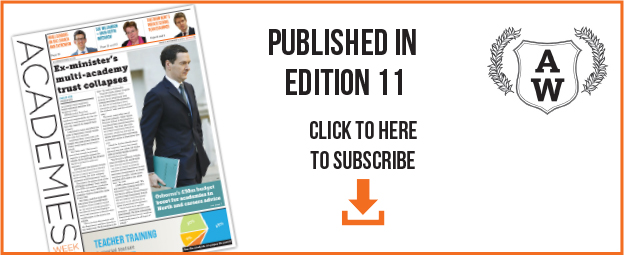Our reviewer of the week is Jill Berry, a former head, now educational consultant and Twitter addict @jillberry102
by Nancy Gedge @nancygedge
Nancy is brilliant at exploring topical issues in education through the telling of stories based on her experiences as a teacher and a parent. I always find her posts moving and memorable. Here she tackles the subject of assessing children according to a national standard by considering her experience of teaching her children, including her eldest, Sam, who has Down’s syndrome, to swim.
Nancy encourages her reader to consider a parent’s perspective without being in any way heavy-handed about it. Plus, she writes beautifully.
As far as teaching her children to swim was concerned: “For a short time I decided to teach them myself. I bought a book and everything. For a short time they valiantly, and successfully, resisted my efforts. In a very short time I gave up my attempts to teach and played with them; I stopped trying to force them before they were developmentally ready. They are all good swimmers now.”
By Emma Kell @thosethatcan
Emma Kell is an assistant head who, like Nancy, demonstrates her values and her educational philosophy through the stories she tells. Here she pays tribute to a former head who died suddenly in the summer.
We learn a great deal about leadership from the role models that we meet throughout our lives, and this post demonstrates powerfully the influence a gifted leader can have, including beyond an untimely death. Kevin taught Emma the importance of leaders looking after their staff and according well-being a high priority.
Emma concludes that, ironically, this may have been at the expense of his own and she advises: “Look after yourselves, people. It’s the most important thing you can do. Then, and only then, can you be what you want to be for those you care about.”
Reading this post, I felt sorry I had never had the privilege to know Kevin.
by Roy Leighton @Roy_Leighton
Roy Leighton is new to me (and thanks to Jarlath O-Brien for recommending him). In this post he explores the importance of being prepared to consider alternative viewpoints.
As I have grown older and my experience of education has developed I find myself less sure of what I think about a number of things; certainly Twitter and blogs regularly encourage me to rethink. Sometimes when arguments rage on Twitter I find myself amazed at how certain and inflexible some educationists appear to be.
In Roy’s words: “If your response to opinions and possibilities that challenge you is to seek to reject, ridicule or block even a conversation that might force you to change yourself or your systems then you have plateaued in your thinking, learning and probably your life. This is unfortunate as an individual and disastrous for the work you do.”
Good advice for teachers everywhere. I do believe that working through doubt, including self-doubt, can make us stronger.
Interventions, AKA helping students
by Shaun Allison @shaun_allison
Finally, Shaun Allison reports here on work he did with Andy Tharby (@atharby) on a recent staff day. The post considers what the word “intervention” actually means, and how interventions can be used to best effect to support learners.
Shaun and Andy suggest: “Interventions are not an add-on – it’s what we do to support students who are getting really stuck with their learning, that is, it’s about great teaching.”
Shaun goes on to describe a “waves of intervention” model designed to help teachers to support and “unstick” learners, (bearing in mind that the “struggle zone” is a healthy and productive place for students to be for a while).
The pair emphasise the importance of teachers knowing their students well, recognising when they are “stuck” (and when they are at risk of moving from the “struggle” into the “panic” zone) and adjusting teaching to help them to find the way forward. The post is full of practical advice and good sense. Sometimes the best ideas are simple ones.













Your thoughts